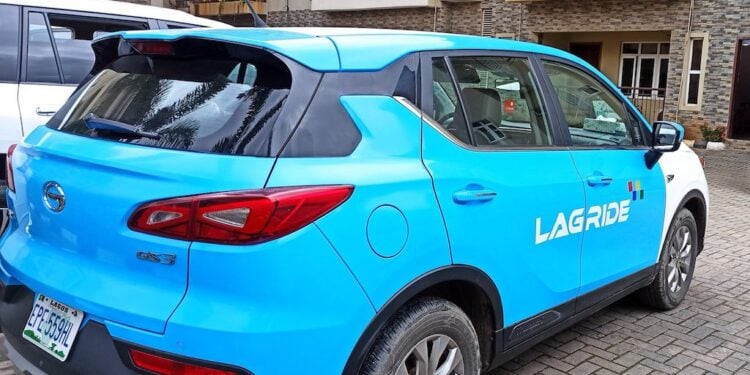LagRide, the Lagos State-backed e-hailing service, has embarked on a significant expansion of its fleet with the addition of 100 electric vehicles (EVs). This initiative marks a pivotal step in the state’s ongoing transition towards a more sustainable, affordable, and technologically advanced urban transportation system. The move aligns with the broader transportation vision championed by President Bola Tinubu, aiming to modernize and clean up the transit network of Africa’s largest metropolis. The new EVs boast a range of over 333 kilometers on a single charge and can be rapidly recharged to full capacity within 30 minutes, thanks to the strategically deployed charging infrastructure across Lagos. This rapid charging capability, combined with optimized routing and driver scheduling, minimizes downtime and ensures consistent service availability for passengers. The cost-effectiveness of EVs translates to higher earnings for drivers, while simultaneously offering Lagos residents quieter, zero-emission rides, contributing to a healthier and more environmentally friendly city.
The introduction of the EV fleet is more than just an expansion; it represents a comprehensive ecosystem designed to enhance urban living. LagRide’s Executive Director, Adeniyi Saliu, highlighted the multifaceted benefits of the initiative, which include reduced waiting times for passengers, increased vehicle reliability, and the creation of new job opportunities in driving, maintenance, and technology-related operations. This comprehensive approach not only modernizes the transportation system but also stimulates economic growth and improves the overall quality of life for Lagos residents. The initiative aligns seamlessly with Lagos State’s long-term economic and environmental objectives, contributing to a more sustainable and prosperous future for the city. This strategic move underscores the commitment to creating a more efficient and environmentally responsible transportation network, setting the stage for a greener and more technologically advanced urban landscape.
A key differentiator of the LagRide model is its unwavering commitment to meticulous maintenance. The company emphasizes a proactive maintenance culture, incorporating preventative servicing, data-driven diagnostics, the utilization of high-quality replacement parts, and the employment of highly trained technicians. This rigorous approach ensures the longevity of the fleet, minimizes breakdowns, and enhances service reliability for riders across the city. Saliu emphasized that the tangible difference for Lagosians will be evident not only in the new vehicles but also in the disciplined and structured maintenance system that ensures their smooth and consistent operation. This commitment to maintenance underscores the company’s dedication to providing a reliable and dependable transportation service for the residents of Lagos.
LagRide’s Public Relations and Communications Lead, Ifeanyi Abraham, drew parallels between the platform’s ambitions and those of global cities like Dubai, where government-backed e-taxis are renowned for their safety, affordability, and efficiency. He emphasized that Lagos is following a similar trajectory, leveraging technology to improve public service, providing professional training for drivers, and deploying vehicles that align with environmental sustainability goals. Abraham highlighted the platform’s commitment to setting new standards within the Nigerian transport sector and positioning Lagos among the global leaders in smart and sustainable urban transportation solutions. This vision reflects a forward-thinking approach to urban mobility, aiming to elevate Lagos to the ranks of other technologically advanced cities around the world.
In a related development, LagRide is poised to significantly expand its driver network by onboarding 10,000 additional drivers through a bank-backed vehicle leasing program before the Yuletide season. This substantial increase in drivers is expected to significantly enhance transport availability, particularly during the festive period when demand for mobility services typically surges. Industry analysts view this strategy as a demonstration of LagRide’s dual focus on sustainability and scalability. By simultaneously expanding its driver base and integrating environmentally friendly vehicles, LagRide is strategically positioning itself as a key player in reshaping urban transportation in Lagos. This proactive approach highlights the company’s ambition to become a leading force in the evolving landscape of urban mobility.
The introduction of the 100 EVs signifies more than just a fleet expansion; it symbolizes Lagos State’s broader vision to address urban challenges such as pollution, congestion, and inefficiency through the implementation of technology-driven mobility solutions. It underscores the state’s commitment to transitioning into an environmentally conscious mega-city equipped with reliable, safe, and affordable transportation services. For commuters, the new electric fleet promises cleaner air, quieter journeys, and more dependable rides. For drivers, it translates to lower operational costs and increased income potential. For Lagos State, the initiative represents progress toward a greener, smarter, and more sustainable urban environment. This comprehensive approach benefits all stakeholders, paving the way for a more efficient and environmentally responsible transportation system for the city of Lagos.


